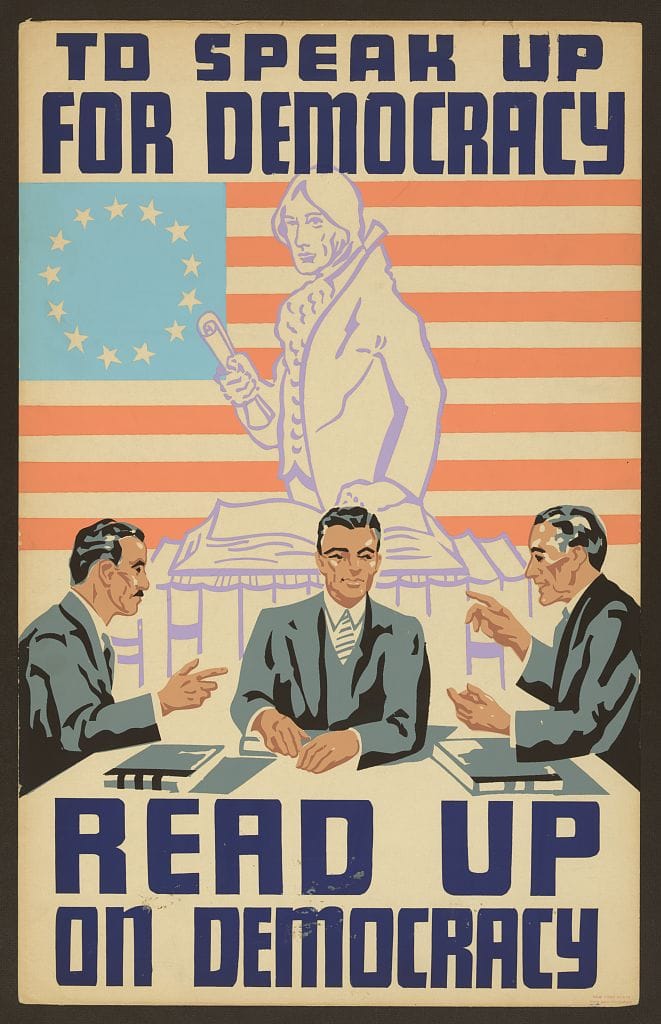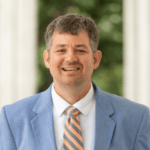Are we more than automatons for democracy?

When I shared on social media that my middle son returned from martial arts practice and asked me if I preferred being kicked in the stomach or the crotch a friend humorously commented that it sounded like a “metaphor for American democracy.”
Still, given all the political talk and commentary about preserving democracy and its sacredness, it’s the perfect time to address that topic in American Habits. Since we are a publication committed to American federalism, it’s vital to understand and examine how those two words are intertwined.
After all, democracy without the culture and practice of self-government not only seems un-American, but self-destructive. In the end, democracies can be as tyrannical as a dictatorship. The whole notion that politicians can save democracy — particularly by centralization— should strike us as farcical.
One observation that is particularly concerning is the widely popular belief in the all-consuming sacredness of voting above other civic responsibilities. Maybe some of you’ve even cringed along with me at the angsty-looking voting selfies suggesting saving democracy by voting is an exhausting endeavor. We’ve turned voting into a kind of public sacrament minus much or any self-reflection.
Tony Woodlief, senior fellow for SPN’s Center for Practical Federalism addresses this topic deftly in his essay “Voting is failing.”
Offering a different take, Hans Zeiger of the Jack Miller Center reminds us that voting is critical since he once won a Washington State legislative race by 29 votes. Of course, he fills that out by discussing the more important characteristics of a healthy democracy – including the current state of civics.
In this issue, we feature interviews with those who share thoughts on the role that states play in federalism. In one interview, Arizona state Supreme Court Justice Clint Bolick explains the importance of state constitutions, not only for expanding rights but counterbalancing the national government. In another, Jim Kallinger of the National Association of Former State Legislators (NAFSL) discusses the importance of state and local lawmakers defending the proper structures of government while highlighting the unique work of NAFSL.

We also get a glimpse at the ever expanding administrative state and its role on our democracy. Jameson Taylor and Ethan Blevins offer up tangible examples of the current war against the administrative state and federal rulemaking that erodes the very notion of “We the People” from our preamble. “We’re at a point now, given the level of federal intrusion, where it’s all hands on deck,” cautions Mississippi Commissioner of Agriculture & Commerce Andy Gipson. While many of our national representatives are in a clowning competition for clicks, it’s encouraging to see cooperation between state lawmakers to restore Constitutional government.
Regular American Habits contributors Andrew Bibb, Winston Brady, and Frank DeVito offer their views on the meaning of democracy as well as new contributor Samuel Lair. Civil society, the common good, local civic engagement, and a return to first principles are all key components of self-government.
James Pinedo of State Policy Network contributes a fictional short story on an encounter between Napoleon and George Washington that touches on the state of our republic. Bruce Edward Walker suggests that Robert Penn Warren’s novel “All the King’s Men” offers up a host of warnings against populism and demagoguery that infects our contemporary political scene. I contribute a review of “The Good Country” by John Lauck, which puts forth the idea that the 19th-century American Midwest was the most advanced democratic and self-governing society in the world at that time.
Speaking of the Midwest, John Hendrickson of Iowans for Tax Relief Foundation asks, “Does Iowa need more Washington agencies to feed people?” It’s a well-illustrated example of how perverse the growth of the federal power has become given there are so many demands for Washington to dictate how to feed people in the nation’s breadbasket states.
Finally, we examine the role of education in our society. Ashley Berner, director of the Johns Hopkins Institute for Education Policy offers us a chance to rethink how we deliver education in a democracy. We also feature our local hero, Shiren Rattinger. Her passion for education and microschools is not only inspiring but helps us all to think deeper about the purpose of education and how it can cultivate great citizens. Rattinger is a reminder of all the people doing great things in a culture too often saturated by negative news or incessant politicking.
One of the chief ties between democracy and federalism is how states and localities are meant to serve as our “labs of democracy.” In the kind of worn and stale national politics that permeates so much of our life today, why would we not further emphasize self-government and policy innovation? Later this year, we will have another major election, but it’s wise to ask what habits we are creating instead of obsessing over subpar presidential candidates that rule over us as we morph into automatons of democracy.



